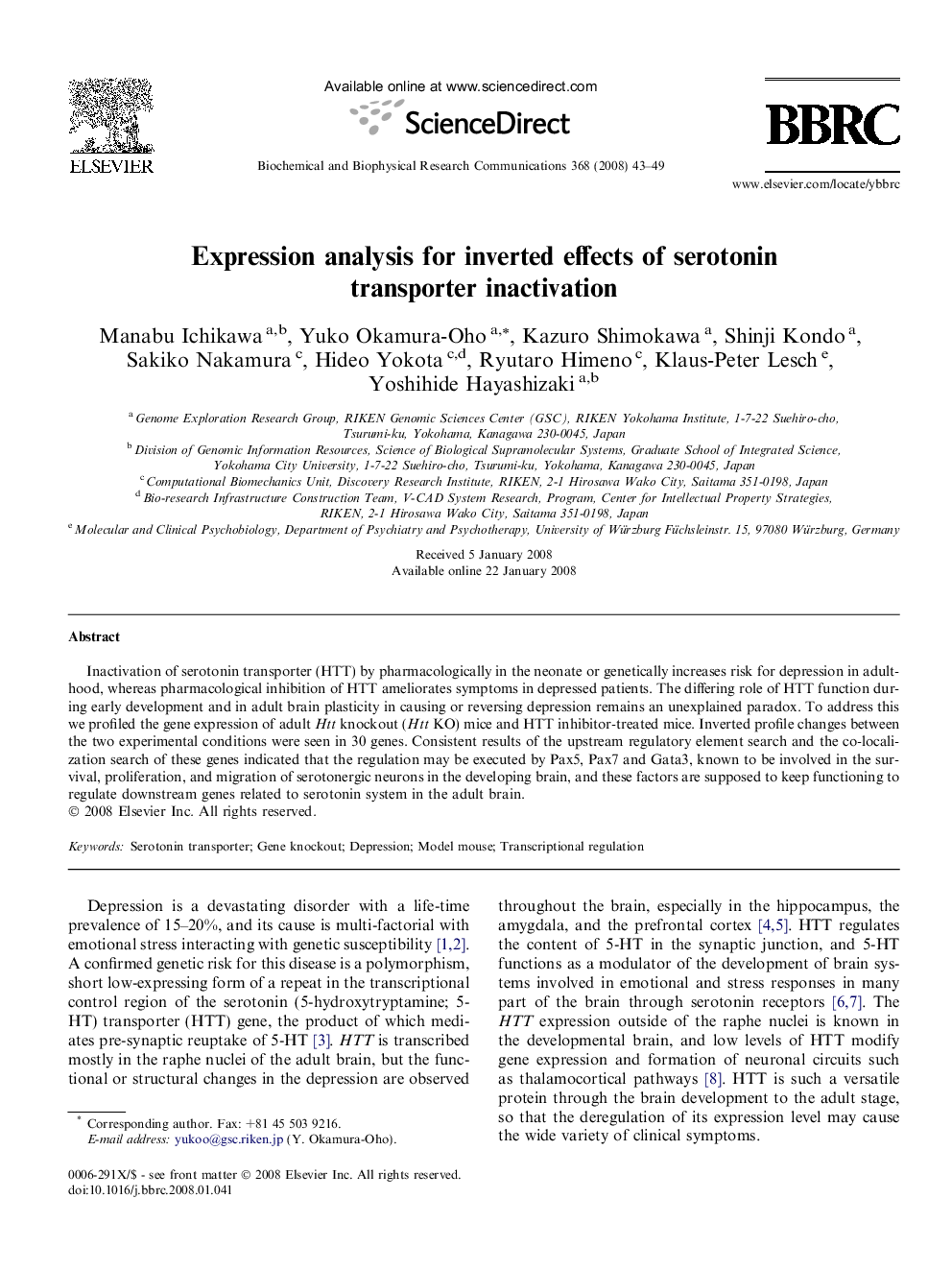| Article ID | Journal | Published Year | Pages | File Type |
|---|---|---|---|---|
| 10766874 | Biochemical and Biophysical Research Communications | 2008 | 7 Pages |
Abstract
Inactivation of serotonin transporter (HTT) by pharmacologically in the neonate or genetically increases risk for depression in adulthood, whereas pharmacological inhibition of HTT ameliorates symptoms in depressed patients. The differing role of HTT function during early development and in adult brain plasticity in causing or reversing depression remains an unexplained paradox. To address this we profiled the gene expression of adult Htt knockout (Htt KO) mice and HTT inhibitor-treated mice. Inverted profile changes between the two experimental conditions were seen in 30 genes. Consistent results of the upstream regulatory element search and the co-localization search of these genes indicated that the regulation may be executed by Pax5, Pax7 and Gata3, known to be involved in the survival, proliferation, and migration of serotonergic neurons in the developing brain, and these factors are supposed to keep functioning to regulate downstream genes related to serotonin system in the adult brain.
Related Topics
Life Sciences
Biochemistry, Genetics and Molecular Biology
Biochemistry
Authors
Manabu Ichikawa, Yuko Okamura-Oho, Kazuro Shimokawa, Shinji Kondo, Sakiko Nakamura, Hideo Yokota, Ryutaro Himeno, Klaus-Peter Lesch, Yoshihide Hayashizaki,
